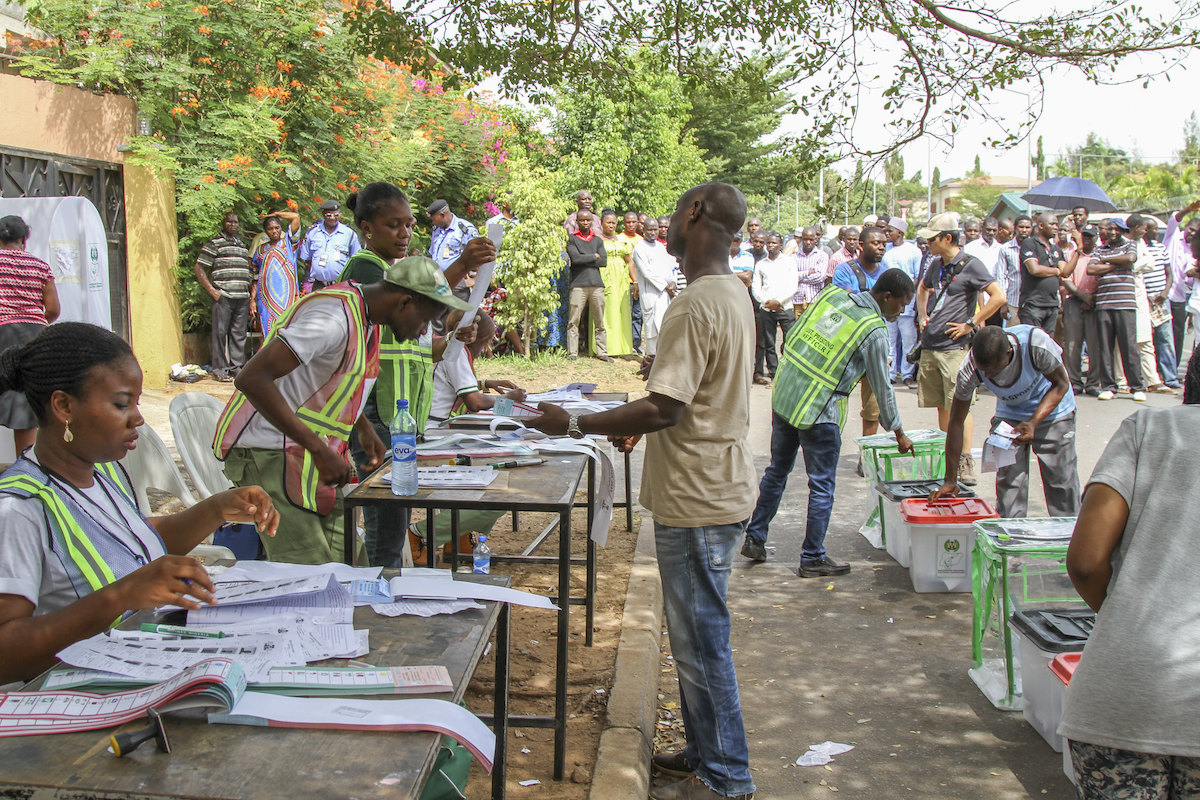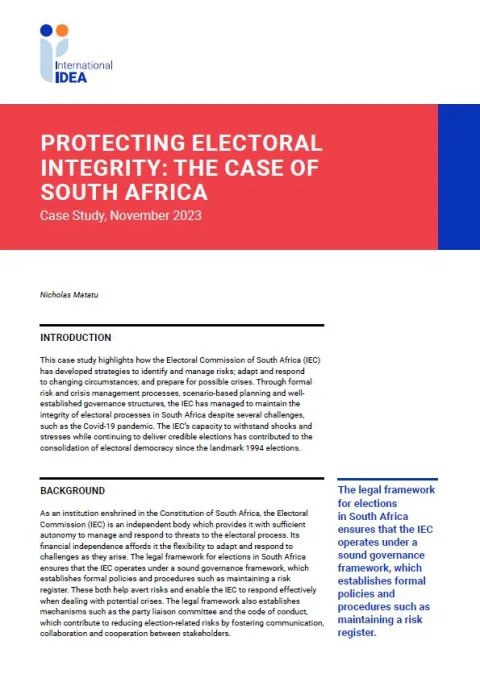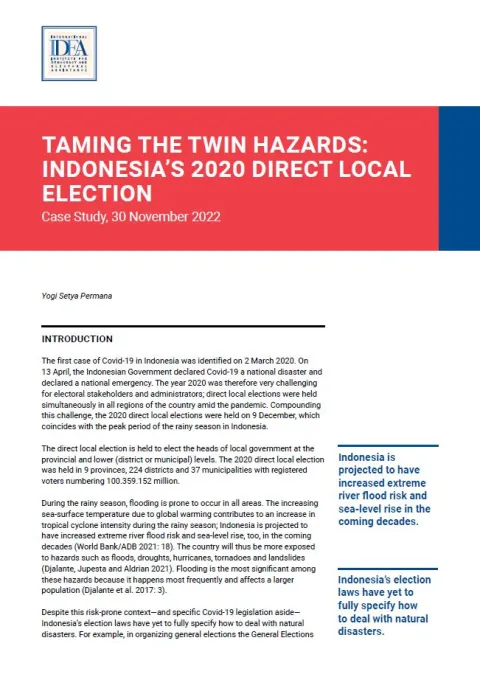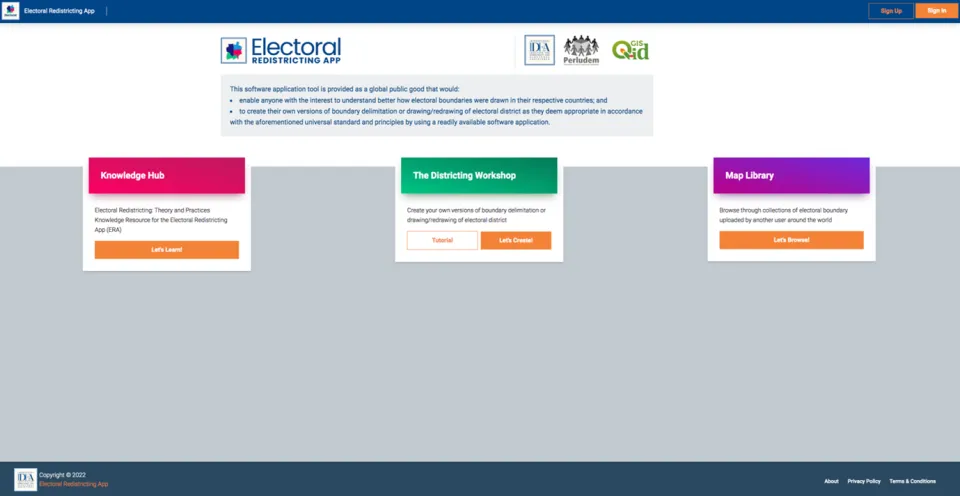Electoral System Design
The choice of electoral system is one of the most important institutional decisions for any democracy.
In almost all cases the choice of a particular electoral system has a profound effect on the future political life of the country concerned, and electoral systems, once chosen, often remain fairly constant as political interests solidify around and respond to the incentives presented by them. The choices made may have consequences that were unforeseen, as well as predicted effects.
Electoral systems can also have a significant impact on the wider political and institutional framework. Their design and effects are heavily contingent upon other structures within and outside the constitution. Successful electoral system design comes from looking at the framework of political institutions as a whole: changing one part of this framework is likely to cause adjustments in the way other institutions within it work.
This Handbook provides a comprehensive overview of the electoral systems in use in more than 200 countries and includes 18 case studies as well as a map showing where the various electoral systems are used. It discusses the advantages and disadvantages of different electoral systems, and the factors to consider when modifying or designing an electoral system.
The Overview is also available in print.
Details
Related databases & tools
Contents
Summaries
Electoral System Design: the New International IDEA Handbook (Summary in English)
Concepção de Sistemas Eeitorais: Uma Visão geral do Novo guia do International IDEA (Summary in Portuguese)
Electoral System Design: the New International IDEA Handbook (Summary in Sinhala)
Electoral System Design: the New International IDEA Handbook (Summary in Tamil)
1. Overview
2. The world of electoral systems
3. The systems and their consequences
4. Electoral systems, institutional frameworks and governance
5. Cost and administrative implications of electoral systems
6. Advice for electoral systems designers
Annexes
Give us feedback
Do you have a question or feedback about this publication? Leave us your feedback, and we’ll get back to you
Send feedbackElectoral System Design
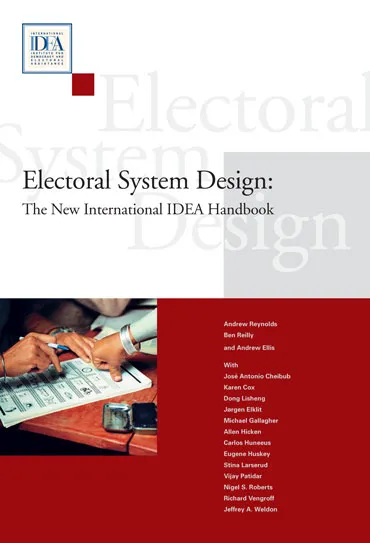
| Total views | 60704 |
|---|---|
| Downloads | 2095 |
| Rating |
Related databases & tools
Give us feedback
Do you have a question or feedback about this publication? Leave us your feedback, and we’ll get back to you
Send feedback